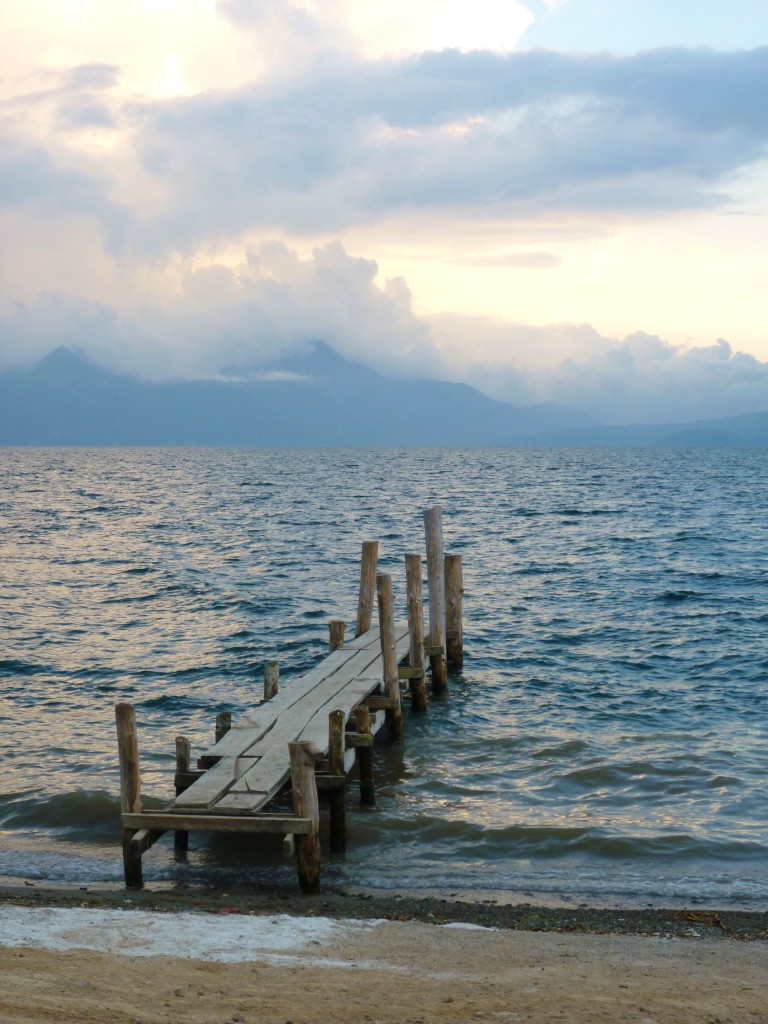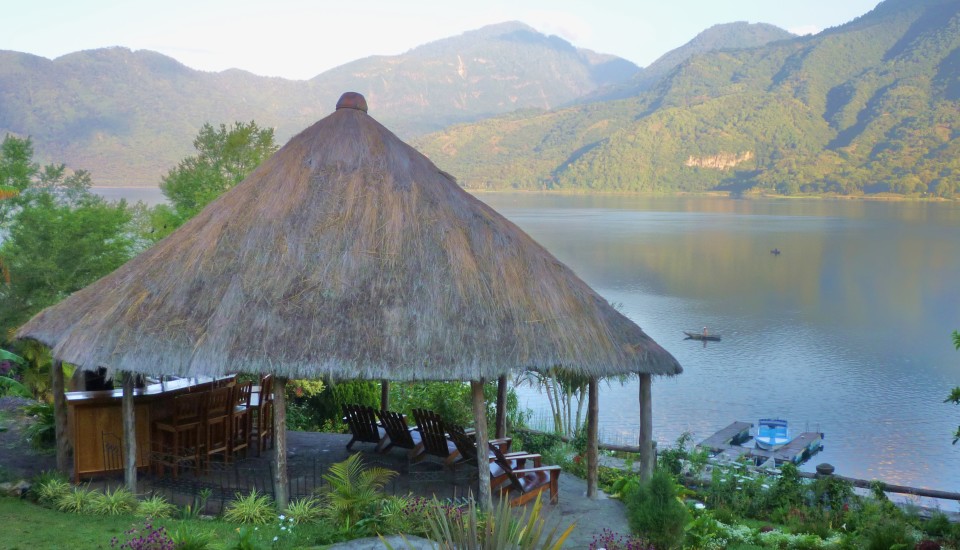While some people dream of living on a yacht, in a castle, on a tropical island, my dream was to live in a developing country. I imagined a little known exotic nook of the world which took some effort to get to, offering the perfect mix of simplicity, adventure, volunteer work, and fresh mangos. In 2007, I took a half-year leave of absence from work. We packed a hockey bag with summer clothes, the rice cooker, a Spanish/English dictionary, and moved to Guatemala. I got to live my entire wish list up close and personal. If you’ve ever had a ripe mango off the tree you’ll understand it when I say, it was everything I’d dreamed of, and more. I’m going to be totally transparent with what drew me to the experience and why I eventually left.
There are aspects of my personality that were amplified and encouraged in Guatemala. I knew I had personality traits that are helpful to expat living. I rock at flexibility, winging it in new situations, and adaptability. I’m a naturally curious person who will effortlessly strike out into unknown situations. I’m relatively unflappable in most situations and creative at solving most problems. When it comes to people and situations I have excellent instincts and intuition. I’m empathetic, I bridge cultural gaps easily, I can make friends effortlessly (which surprised me). I can be happy with few material possessions. In many ways I was thriving more than anywhere else I’d lived
We lived in Guatemala for a total of three years over the span of six. I loved it there–the people, the culture, the work I was doing, the climate, the constant adventure, the community of friends I’d made. Clearly, this was our new home base. But as the years accumulated, a new reality settled in–not so much about Guatemala, but about me.
I grew up poor by American standards. My mom plus three kids lived on five hundred dollars a month. But compared to the realities of many Guatemalan families, I. Was. Never. Poor. We were never without a small house, big garden, free school, cheap clothes, clean water, electricity, eggs and noodles. For many families globally, this would be a dream come true. Perspective’s a…you know.
While as a kid I loathed wearing the “have-not” shoe among my peers, later in life the “have” shoe wasn’t a comfortable fit either. Growing up I didn’t know a family who lived on less money that we did. In small houses kids hear all the money stuff, then blab to friends. Welfare was more lucrative than splitting my dad’s teacher’s salary between his household and ours. I spent my childhood wanting to be on the other side of affluent, the side where parents did more smiling and ordered french fries with their burgers.
In Guatemala, I got a taste of what being privileged felt like. Turns out when I got to be an obvious “have,” it didn’t feel the way I thought it would. The disparity was too significant in our particular village. I faced daily decisions to give or not to give to kids and women on the streets, moms with babies ringing the doorbell, being approached in restaurants. There are many expats living in poor areas who are able to manage the disparity. Perhaps it reminded me too much of how I felt growing up. For me being a person of privilege in a significantly impoverished area wasn’t just a bummer, it often felt unbearable. Their immediate and ongoing collective group hunger vs. my kids’ college fund. It’s all so messed up. I began to realize that I wasn’t cut out for permanently settling in a country with such harsh economic extremes. I had too much trouble with any of the affluent shoe options.
Do Something.
I’ve always supported the “see a need, do something” philosophy. Advocating, actions of any size, influencing, being kind, all of these will nudge the world to a better place. Small Rosa Parks actions can make change. In Guatemala there was no shortage of places to invest time and energy. I thought I had an endless supply of energy for volunteer work. I learned that long-term NGO workers, like the woman who runs Mayan Families, are superhuman. They are mentally tough, extra resilient, and positive beyond what seems reasonable. I have a deeper respect for those who work long-term in tough settings, but I’m made of the super-stuff. No matter how many houses I helped build or how many street dogs we rescued, it became increasingly difficult to counteract my feelings of heaviness for the poor, the mistreated dogs, the hopelessness of the larger context of corrupt infrastructure.
Sometimes called, the Basics
I was raised in a small, basic house. But no matter how run down, that house was in a highly developed society. In Guatemala we lived without clean water, consistent electricity, safe food. Can be done. But after a few years, I began to miss having these conveniences.
Entertainment
I’m sheepish to admit it, especially when people are struggling to feed their families, but I have entertainment wants. Who knew? Not the kind that are satisfied with black market street DVDs or an occasional hippy music festival across the lake. We enjoy going out to eat, to a movie, a concert, play. As a family we like road trips to national parks, museums, other cities. Our Guate town had a handful of gringo-stomach-safe restaurants and a tired nightclub for the younger touristy crowd. It was one of the trade-offs with this particular location choice. What I didn’t realize about myself is that I not only enjoy extra-curriculars, but enjoy a variety to choose from. Probably why I’ve always been a city dweller. I thought the lack of these extras wouldn’t be a big deal, a new culture would be interesting enough. Yet after a few years when the culture was no longer new and exciting, it wasn’t enough.
Guatemala taught me that as much as I love experiencing other cultures, I am deeply rooted in my own. When I am away from my culture for longer periods of time, I long for its familiarity. Now I know, long-term we’ll find a home base with the lifestyle conveniences we’re used to, including a variety of entertainment options. Shallow? Perhaps.
The Guate years amplified both my limitations as well as my strengths. It was by far the most liberating experience I’ve had and I treasure all the memories I made there. But my dream circled back to where I started in the beginning. I will continue to enjoy exploring new cultures, but will likely have a home base rooted in my own.

